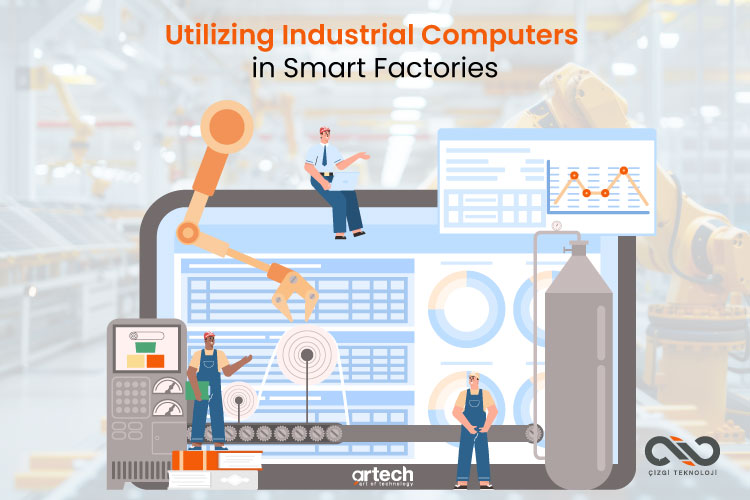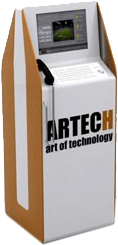Utilizing Industrial Computers in Smart Factories

Industry 4.0 and factories are no strangers to automation, but industrial computers, artificial intelligence, IoT (Internet of Things), cloud computing, and other advanced digital technologies are reshaping manufacturing processes.
What is a Smart Factory?
A smart factory is a digitally integrated production environment where constant monitoring and self-optimization enhance manufacturing efficiency. Innovations in IoT (Internet of Things) and big data analytics have made smart production possible.
Digital sensors collect data from the factory floor and wirelessly transmit it to a centralized industrial computer. The industrial computer then analyzes the data, sends automated optimization commands to production machines, and visualizes information for factory personnel. This system ensures greater consistency at every stage of production.
Smart factories reduce production costs while increasing output, product quality, and customer satisfaction.
Why Are Industrial Computers Essential for Smart Factories?
Factory environments are not suitable for consumer-grade laptops and tablets. Machine vibrations, temperature fluctuations, dust, and humidity can quickly render conventional computers useless. Industrial computers are built to withstand these challenging conditions:
- Resistant to vibrations and shocks.
- Fanless cooling system prevents dust and particle damage.
- Capable of operating in extreme temperatures and humidity.
- Equipped with tempered glass screens for durability and longevity.
The Role of Industrial Computers in Smart Factories
Smart cameras measure efficiency at every stage of production and transfer data to industrial computers for analysis. IoT sensors continuously monitor temperature, vibration, pressure, and other parameters to detect overheating, malfunctions, and calibration issues. This proactive approach allows operators to resolve potential issues before they disrupt production.
Industrial panel PCs play a crucial role in data visualization. Their rugged, shatter-resistant touchscreen displays allow operators to quickly identify production slowdowns and reallocate resources to minimize productivity losses.
Additionally, industrial panel PCs can be customized with 2D scanners, RFID, and smart card readers, enhancing production line efficiency and automation.
Conclusion
Smart factories process and analyze vast amounts of data throughout manufacturing. Industrial computers efficiently manage this data, optimizing automation processes and ensuring seamless production workflows.
To transition into the future of manufacturing, businesses must invest in industrial computer solutions. Learn more about Artech Industrial Computer Solutions by contacting us today.



 English
English
 TR
TR